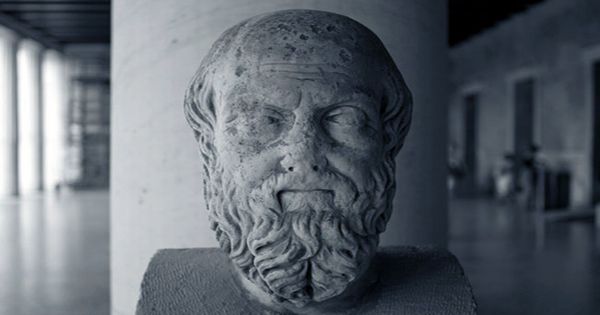Have you ever delivered a joke that made you laugh out loud? Have you ever told someone anything so hilarious that they died? Chrysippus of Soli, a Greek Stoic philosopher, appears to have done so. What was the “killer” joke that finally got him? When Chrysippus noticed that a donkey had eaten all of his figs, he instructed someone to give the donkey some wine to drink. After that, he laughed himself to death. I suppose I had to be there.
The lethal dosage of horsing around (try not to choke on that one) is documented in Diogenes Laertius’ Lives of Eminent Philosophers, Volume I, which reads: “Some claim he died from a bout of uncontrollable laughing. Seeing his ass eating figs, he instructed his old mother to give the ass some unmixed wine to sip later, and then he died laughing so fiercely.” However, according to Mikhail Bakhtin’s book Rabelais and His World, Chrysippus wasn’t the only one who died of jest on that dreadful day.
According to a research study published in the journal Differences, “Bakhtin quotes Rabelais’s depiction of the killing of Chrysippus and Master Janotus (who both laughed at the inebriated donkey),” indicating that some jokes are so humorous that they can amount to two counts of first-degree murder.
As amusing as it may seem to envision a Greek stoic philosopher and his companion laughing themselves to death over a mutilated donkey drinking wine, their deaths have been documented, translated, and understood for over two millennia. As a result, determining the cause of death is difficult, and it’s possible that the Greeks would have reached a different conclusion if they had access to the types of post-mortem tests we have today. Bakhtin’s portrayal of their dying moments is everything but cheerful.
“‘Their eyes wet as the brain matter forced out these lachrymal humidities and brought them streaming out through the optic nerves’.” In Laertius’ writings, Chrysippus comes out as a bit of a con artist, telling a popular incident in which the philosopher, when asked, “To whom must I leave my son?” replied, “To myself, for if I felt there was anybody greater than myself, I would have gone to him to teach me philosophy.”















